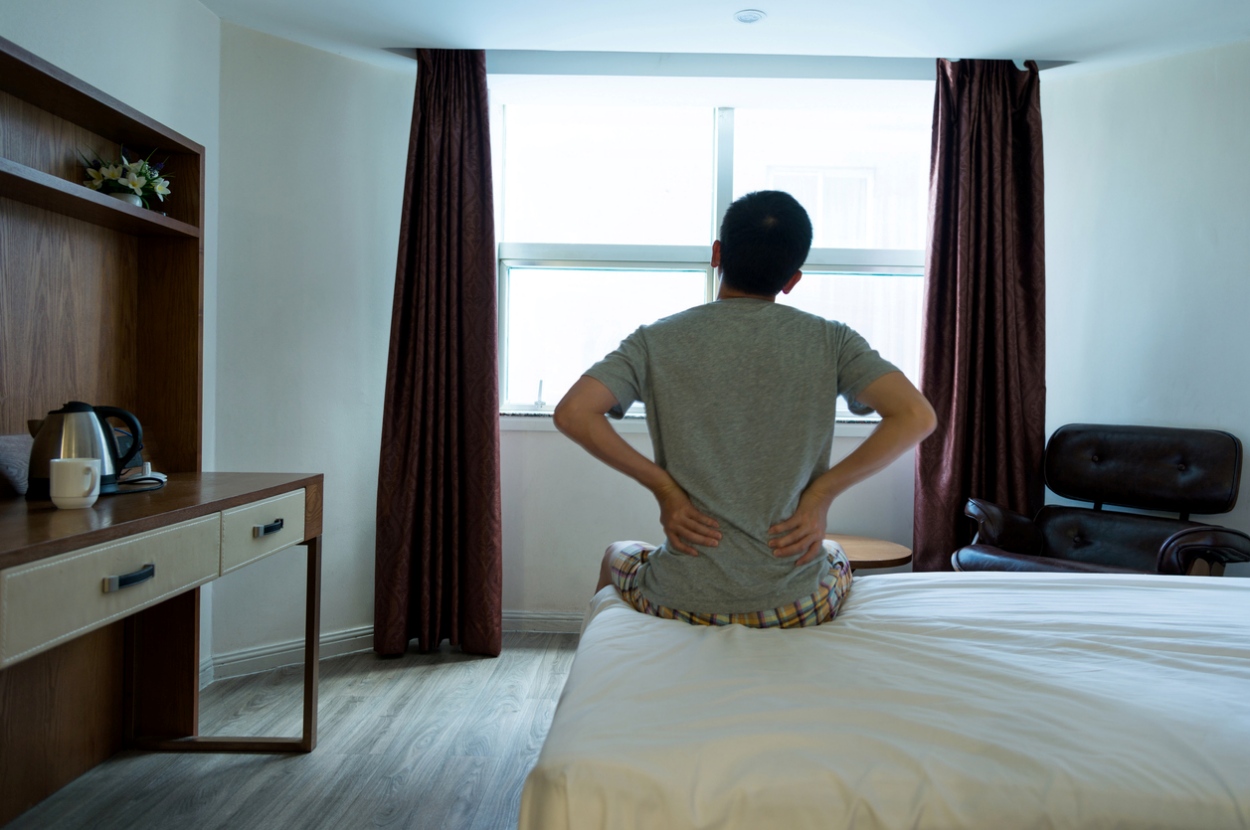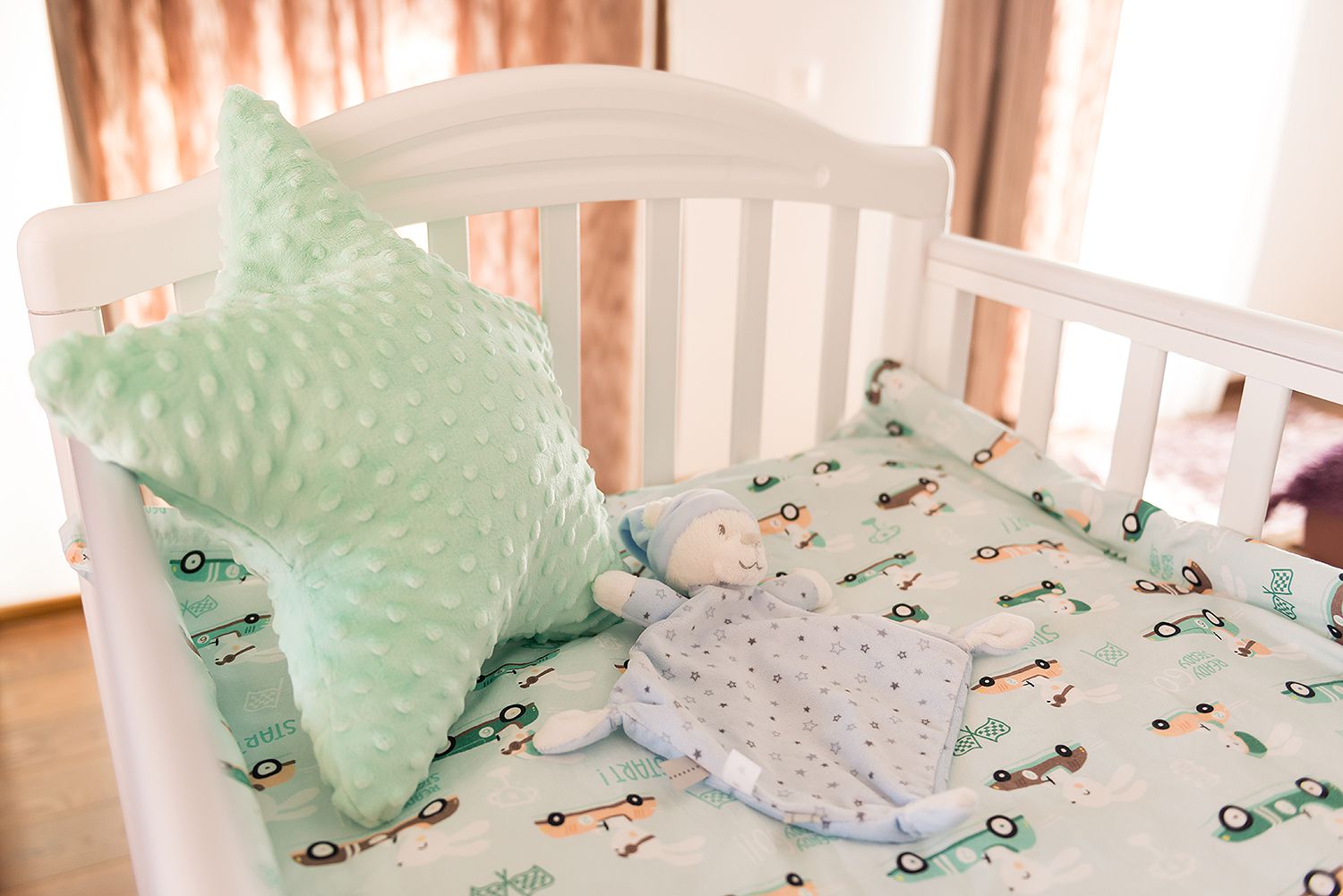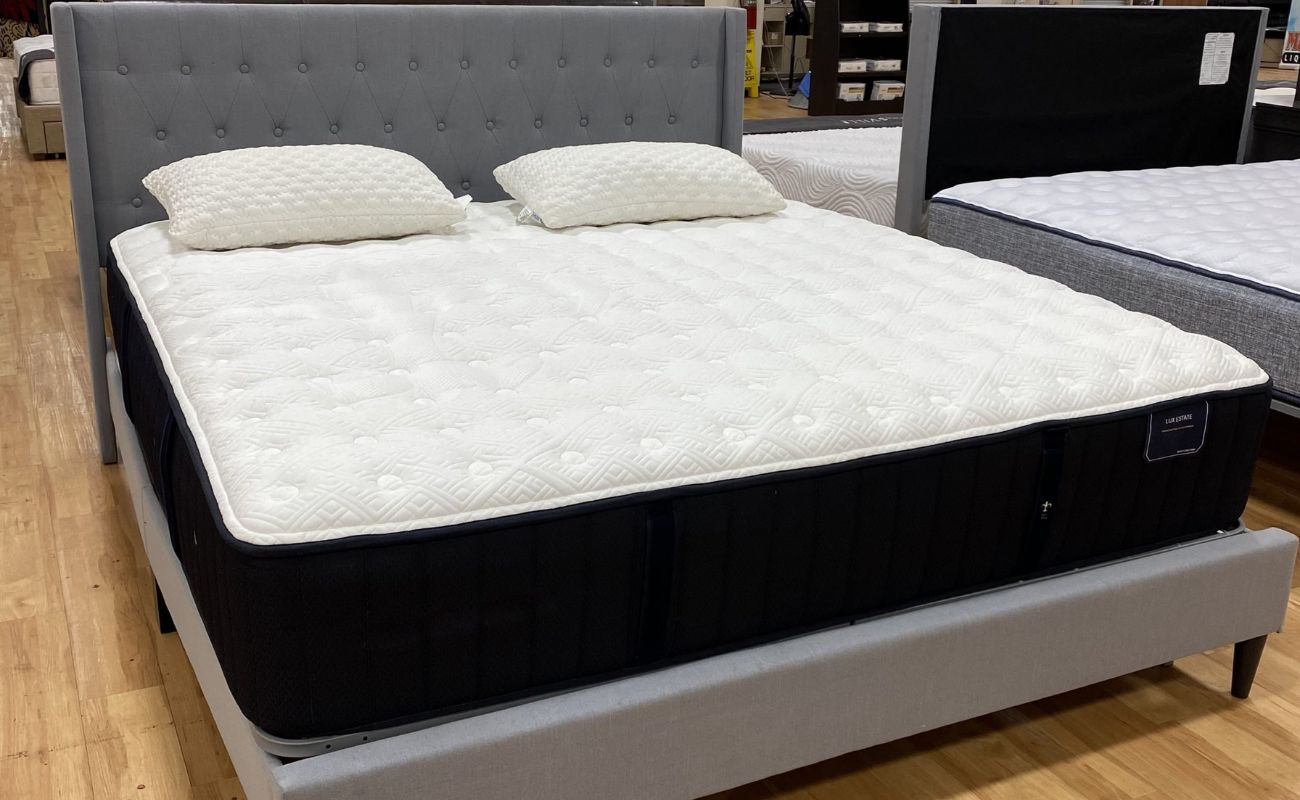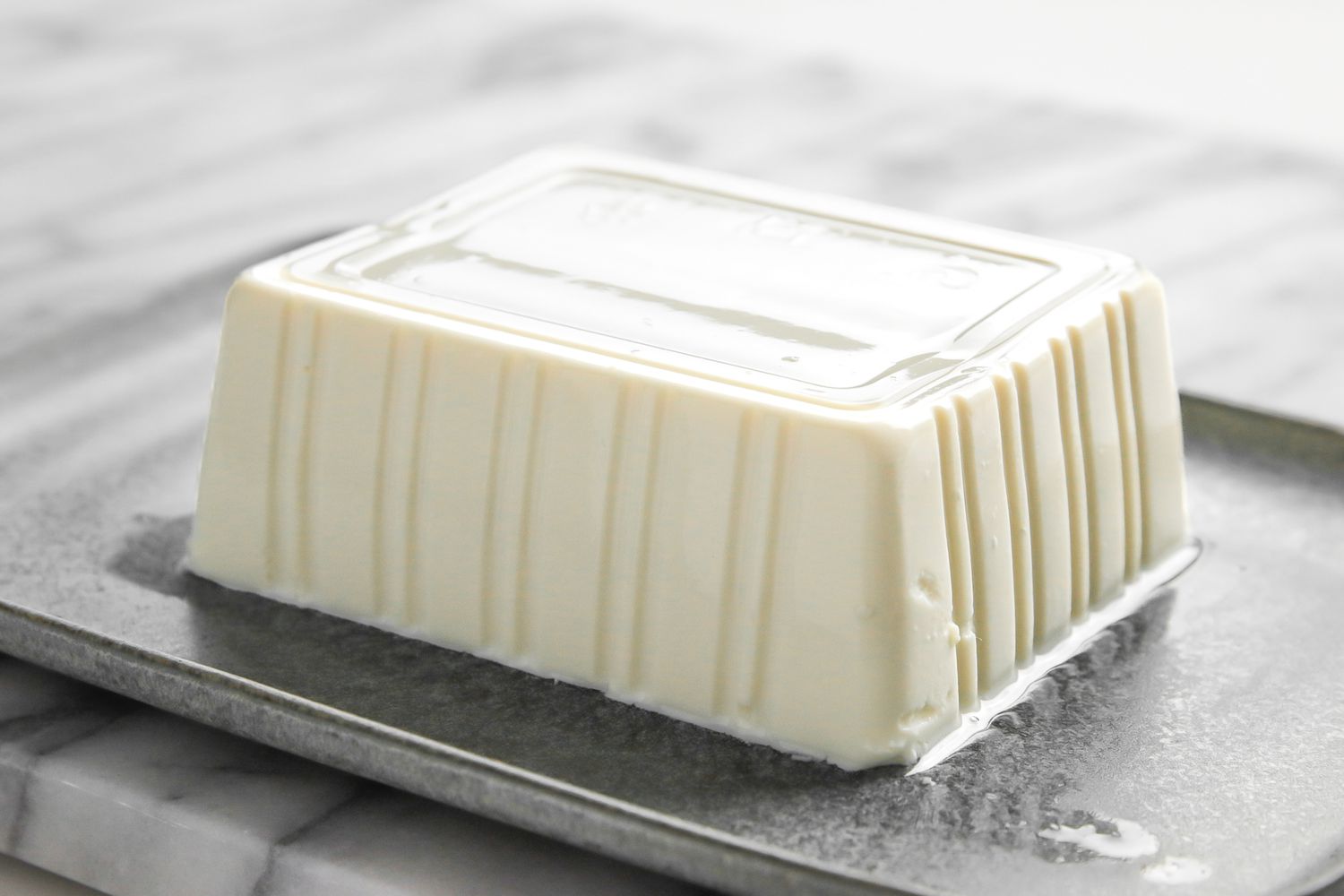Home>Furniture>Bedroom Furniture>How To Tell If A Mattress Is Too Soft


Bedroom Furniture
How To Tell If A Mattress Is Too Soft
Modified: January 9, 2024
Learn how to know if your mattress is too soft with this helpful guide. Find out what signs to look for and how to improve your sleep quality.
(Many of the links in this article redirect to a specific reviewed product. Your purchase of these products through affiliate links helps to generate commission for Storables.com, at no extra cost. Learn more)
Introduction
Choosing the right mattress is vital for a good night’s sleep and overall well-being. While some people prefer a soft and plush sleeping surface, it’s important to recognize when a mattress is too soft and may not be providing the necessary support for your body. In this article, we will explore the signs that indicate your mattress may be too soft and how it can impact your sleep quality.
A soft mattress may initially feel comfortable, but it can lead to a range of issues if it lacks proper support. It’s essential to find a balance between comfort and support to ensure that your spine is aligned correctly and your pressure points are adequately supported.
So, how can you tell if your mattress is too soft? Let’s dive into the signs to look out for:
Key Takeaways:
- A soft mattress lacking support can lead to discomfort, poor spinal alignment, and pressure points, impacting sleep quality and overall well-being. Invest in a firmer, supportive mattress for better sleep.
- Soft mattresses may cause overheating, sagging, and allergen buildup, affecting sleep environment and health. Consider cooling features, durability, and allergen resistance when choosing a mattress for improved sleep.
Read more: How To Tell If Your Mattress Is Too Soft
Signs of a Soft Mattress
When it comes to determining if a mattress is too soft, there are several key signs to watch out for. These signs can range from lack of support to physical discomfort during sleep. Here are the most common signs that indicate your mattress may be too soft:
- Lack of Support: One of the primary indicators of a soft mattress is a lack of proper support. If you frequently find yourself sinking too deeply into the mattress, it may not be providing the necessary support your body needs. This lack of support can lead to poor spine alignment and discomfort.
- Sinkage: When you lie down on a mattress and notice that you sink too far into it, it can be a clear sign that the mattress is too soft. Your body should ideally be supported by the mattress without excessive sinkage, as this can cause a misalignment of the spine and put strain on your muscles and joints.
- Poor Spine Alignment: A mattress that is too soft can fail to properly align your spine, leading to discomfort and potential long-term issues. Your spine should maintain a neutral position while you sleep, and a soft mattress may not provide the necessary support to achieve this.
- Pressure Points: A soft mattress may not adequately distribute your body weight, leading to increased pressure on certain areas of your body. This can cause discomfort and pain, especially in sensitive areas like the hips, shoulders, and lower back. If you frequently wake up with soreness or pressure points, it may be a sign that your mattress is too soft.
- Troublesome Sleeping Positions: If you find yourself constantly shifting positions during the night and struggling to find a comfortable spot, it could be due to a mattress that is too soft. A mattress with insufficient support can make it challenging to maintain a comfortable sleeping position, leading to restless nights and disrupted sleep.
These signs are crucial to be aware of, as sleeping on a mattress that is too soft can have long-term effects on your sleep quality and overall health. It’s important to address these issues and consider investing in a new mattress that provides the right level of support and comfort for your needs.
Lack of Support
One of the most significant signs that indicate your mattress may be too soft is a lack of proper support. While it may feel comfortable at first, a soft mattress can fail to adequately support your body, resulting in uncomfortable sleep and even long-term health issues.
When you lie down on a mattress that lacks support, you may notice that your body sinks too deeply into the mattress. This sinking sensation can cause your spine to become misaligned, leading to discomfort and pain. Your spine’s natural curves should be maintained while you sleep, and a mattress that is too soft can disrupt this alignment.
Without the right level of support, pressure points can develop, particularly in areas such as the hips, shoulders, and lower back. These pressure points can result in pain and discomfort, making it difficult to get a restful night’s sleep.
Another consequence of a mattress lacking support is that it can create issues for individuals who suffer from conditions such as chronic back pain or arthritis. These individuals require a mattress that can provide proper support and relieve pressure on their sensitive joints.
If you find that your mattress lacks support, it’s essential to consider investing in a new one that offers a firmer sleeping surface. A mattress with adequate support will maintain proper spine alignment, distribute your body weight evenly, and alleviate pressure points. This can lead to improved sleep quality, reduced pain, and enhanced overall well-being.
Remember, everyone’s needs are different, so it’s important to find a mattress that provides the right level of support for you. Testing out different mattresses and consulting with experts can help you determine the ideal level of firmness and support that suits your body and sleep preferences.
By addressing the lack of support in your mattress, you can take a crucial step towards improving your sleep quality and ensuring that you wake up refreshed and ready to tackle the day.
Sinkage
Sinkage is another clear sign that your mattress may be too soft. When you lie down on a mattress and find yourself sinking too deeply into it, it can disrupt proper spinal alignment and result in discomfort and poor sleep quality.
A mattress that is too soft will allow your body to sink too far into its surface. This excessive sinkage can cause your spine to curve unnaturally, leading to strain on your muscles and ligaments. Over time, this can contribute to back, neck, and shoulder pain.
Not only does sinkage affect spinal alignment, but it can also impact other areas of your body. When you sink deeply into a mattress, it can create pressure points in sensitive areas like the hips, shoulders, and knees. These pressure points can cause pain and discomfort, leading to restlessness and disrupted sleep.
Sinkage can be particularly troubling for individuals who are overweight or have larger body frames. A soft mattress may not provide adequate support to distribute their body weight evenly, leading to deeper sinkage and increased discomfort.
Additionally, excessive sinkage can make it difficult to get in and out of bed or change positions during the night. It can create a “stuck” feeling, making it challenging to move freely and find a comfortable sleeping position.
If you notice significant sinkage in your mattress, it may be time to consider a firmer option that provides better support. A mattress with less sinkage will help maintain proper spinal alignment and alleviate pressure points, promoting better sleep posture and improved sleep quality.
Keep in mind that sinkage can vary based on factors such as the quality and age of the mattress, as well as individual preferences. It’s important to find the right balance between comfort and support to ensure a restful and rejuvenating sleep experience.
By addressing sinkage in your mattress, you can enhance your sleep quality, alleviate discomfort, and promote better overall spinal health. Investing in a mattress that offers the appropriate level of support and minimizes sinkage can have a significant impact on your well-being.
Poor Spine Alignment
Proper spine alignment is crucial for a good night’s sleep and overall spinal health. However, a mattress that is too soft can lead to poor spinal alignment, resulting in discomfort and potential long-term issues.
When you lie down on a soft mattress, your body may sink too deeply, causing your spine to curve unnaturally. This misalignment can put excessive stress on the muscles, ligaments, and discs of the spine. Over time, it can lead to back pain, stiffness, and reduced mobility.
A mattress that lacks support can also contribute to poor spinal alignment. Without proper support, the weight of your body may not be evenly distributed, causing certain areas of the spine to bear more pressure. This can result in misalignment and strain on the muscles and ligaments surrounding the spine.
Poor spinal alignment during sleep can also affect your posture throughout the day. If your spine isn’t aligned properly during the night, it can lead to aches and discomfort during your waking hours. It can also contribute to fatigue and decreased energy levels.
Individuals with pre-existing conditions such as scoliosis or herniated discs may be particularly susceptible to the negative effects of a soft mattress on spinal alignment. These conditions require proper support to alleviate pressure on the affected areas and prevent further damage.
To ensure proper spinal alignment, it’s important to choose a mattress that offers the right level of support. A medium-firm or firm mattress is often recommended as it can provide the necessary support to keep your spine aligned while still offering some level of comfort.
When testing mattresses, pay attention to how well it supports the natural curves of your spine. Your spine should maintain a neutral position, with the head, shoulders, and hips aligned. If you notice any gaps between your body and the mattress or feel any pressure points, it may be a sign that the mattress is not providing proper spinal alignment.
By prioritizing proper spinal alignment in your choice of mattress, you can promote a healthier spine, alleviate discomfort, and improve the quality of your sleep. Your body will thank you for the support it needs to rest and recover during the night, leading to better overall well-being.
Read more: What To Do If Your Mattress Is Too Soft
Pressure Points
Pressure points are areas of the body that bear the most weight and are more susceptible to discomfort and pain. When a mattress is too soft, it may fail to properly distribute your body weight, leading to increased pressure on certain areas. This can create pressure points and result in pain, discomfort, and restless sleep.
Common pressure points include the hips, shoulders, and lower back. These areas can experience heightened pressure if the mattress doesn’t provide enough support or if it allows excessive sinkage. As a result, you may wake up with soreness, stiffness, or even numbness in these areas.
When pressure points are constantly aggravated due to a soft mattress, it can lead to long-term issues such as chronic pain or the development of pressure sores. It’s essential to address these pressure points and ensure that your mattress is providing adequate support to avoid these problems.
A mattress that offers proper support will help distribute your body weight more evenly and alleviate pressure on these vulnerable areas. When testing out mattresses, pay attention to how well it conforms to your body and supports these pressure points. Look for a mattress with a balance of comfort and support that provides relief to these sensitive areas.
Individuals who suffer from conditions such as arthritis, fibromyalgia, or joint pain may be especially vulnerable to pressure points. They require a mattress that can minimize pressure and provide targeted support to alleviate their symptoms and ensure a better sleep experience.
It’s worth noting that different body types and sleep positions can also impact the location and severity of pressure points. Side sleepers, for example, may experience increased pressure on their hips and shoulders, while stomach sleepers may experience pressure on their neck and lower back.
By choosing a mattress that reduces pressure points, you can enjoy a more comfortable and pain-free sleep. Your body will experience less stress, leading to improved sleep quality and overall well-being.
Check for excessive sinking or sagging in the mattress, which can indicate it is too soft. If you feel like you are sinking too much and not getting enough support, the mattress may be too soft for your needs.
Troublesome Sleeping Positions
Your sleeping position plays a significant role in the quality of your sleep and how well your body is supported by the mattress. A mattress that is too soft can make it challenging to maintain a comfortable sleeping position, leading to restless nights and disrupted sleep.
Side sleepers often find a soft mattress appealing, as it can provide cushioning and relieve pressure on the shoulders and hips. However, if the mattress is excessively soft, it may cause the body to sink too deeply, leading to misalignment of the spine and increased pressure on the joints. This can result in discomfort and pain, compromising the quality of your sleep.
Back sleepers, on the other hand, require adequate support to maintain proper spinal alignment. If the mattress is too soft, it can cause the lower back to sink too far into the mattress, leading to an unnatural curve in the spine. This can result in back pain and discomfort, making it difficult to achieve a restful sleep.
Stomach sleepers face their own set of challenges with a soft mattress. This sleeping position already puts strain on the lower back, and a mattress lacking support can exacerbate this issue. Without proper support, the hips can sink too far into the mattress, causing the spine to curve unnaturally and leading to discomfort and pain.
Whether you’re a side sleeper, back sleeper, or stomach sleeper, finding the right level of support is crucial. Your mattress should provide enough firmness to promote proper spinal alignment and alleviate pressure points, while still offering some level of comfort to ensure a restful sleep.
When testing mattresses, make sure to spend some time in your preferred sleeping position to assess comfort and support. If you find yourself constantly shifting positions or waking up with aches and pains, it may be an indication that your mattress is not suitable for your sleeping position.
By choosing a mattress that caters to your sleeping position and provides the necessary support, you can enjoy better sleep quality, improved comfort, and a more rejuvenating sleep experience.
Sagging
Sagging is a common issue that occurs over time when a mattress loses its structural integrity and begins to develop indentations or depressions. A soft mattress is more prone to sagging, as the materials used in its construction may not have the durability to withstand prolonged use.
When a mattress sags, it typically loses support in certain areas, leading to an uneven sleeping surface. This can cause discomfort and make it difficult to find a comfortable position to sleep in. It may also contribute to poor spinal alignment and increased pressure on certain areas of the body.
Sagging can occur in different parts of the mattress, including the middle or the area where you usually sleep. When the mattress sags in the middle, it can cause you to roll towards the center of the bed, resulting in an uncomfortable and constricting sensation.
Not only does sagging affect the comfort level of the mattress, but it can also impact its longevity. If left unaddressed, sagging can worsen over time, making the mattress even less supportive and further compromising your sleep quality.
It’s important to note that even the best quality mattresses can develop some degree of sagging over time. However, a mattress that is too soft may be more prone to sagging earlier than a firmer mattress.
To minimize the risk of sagging, it’s essential to invest in a high-quality mattress that is designed to provide proper support. Consider opting for a mattress made with durable materials and reinforced support systems. Additionally, rotating or flipping your mattress regularly can help distribute wear and tear more evenly, prolonging its lifespan.
If you notice significant sagging in your mattress, it may be time to consider a replacement. A sagging mattress can negatively impact your sleep quality and overall well-being. By investing in a new mattress that provides the necessary support, you can ensure a comfortable and rejuvenating sleep experience.
Overheating
Overheating during sleep can be a significant issue, especially if you live in a warm climate or tend to sleep hot. While a soft mattress may initially feel cozy, it can contribute to excessive heat retention and discomfort during the night.
Soft mattresses often have more plush layers and materials that tend to trap heat. These materials, such as memory foam, can conform closely to your body, which may restrict airflow and increase heat retention. As a result, you may find yourself waking up in the middle of the night feeling sweaty and uncomfortable.
When your body overheats during sleep, it can disrupt your sleep cycle and lead to restless nights. Quality sleep requires a slightly cooler environment and the ability to regulate your body temperature effectively. If your mattress doesn’t provide proper breathability and heat dissipation, it can hinder this process.
If you frequently experience overheating in bed, there are some strategies you can employ to mitigate the issue. Firstly, look for a mattress with cooling features. Many mattresses now incorporate technologies like gel-infused foams or breathable fabrics to help keep you cool throughout the night.
Additionally, consider using cooling bedding accessories such as moisture-wicking sheets, breathable mattress protectors, or a cooling mattress topper. These can help create a more comfortable sleep environment and prevent excessive heat buildup.
It’s also important to ensure proper airflow in your bedroom. Keep windows open, use fans or air conditioning to maintain a cool temperature, and avoid heavy blankets or pajamas that can contribute to overheating.
Finally, consider your sleep position and how it affects your body’s heat distribution. Certain positions, such as sleeping on your side with your arms tucked in, can increase heat retention. Experiment with different sleep positions to find the one that keeps you coolest throughout the night.
By addressing the issue of overheating in bed, you can enjoy a more comfortable sleep environment and improve your overall sleep quality. A mattress that provides adequate breathability and cooling properties can help regulate your body temperature, allowing you to sleep soundly and wake up refreshed.
Read more: What Is The Best Soft Mattress
Allergies and Dust Mites
When it comes to your mattress, it’s not just about comfort and support, but also about the potential health hazards it may pose. A soft mattress can be a breeding ground for allergens and dust mites, which can contribute to allergy symptoms and respiratory issues.
Dust mites are tiny creatures that thrive in warm and humid environments, such as mattresses. They feed on dead skin cells and their waste particles can trigger allergic reactions in susceptible individuals. These reactions may include sneezing, coughing, itchy eyes, and congestion.
Soft mattresses, especially those made of materials like memory foam, can be particularly problematic as they can trap heat and moisture, creating an ideal habitat for dust mites. The plush layers and dense foam of a soft mattress can accumulate dust, skin cells, and other debris over time, providing a food source for these microscopic pests.
To minimize the risk of allergies and dust mites, it’s important to choose a mattress that is resistant to allergens and easy to clean. Look for mattresses with hypoallergenic properties or those treated with antimicrobial and dust-mite resistant technologies.
Regularly cleaning your mattress can also help reduce the presence of dust mites and allergens. Vacuuming the mattress surface, using mattress protectors, and washing your bedding in hot water can help eliminate dust mites and their waste particles.
Additionally, consider using allergy-friendly bedding materials such as hypoallergenic pillows and mattress protectors. These items can create an additional barrier against allergens and dust mites, minimizing your exposure while you sleep.
It’s important to note that even with proper cleaning and maintenance, dust mites can still be present in your mattress. If you have severe allergies or asthma, it may be beneficial to invest in a mattress specifically designed for allergy sufferers.
By prioritizing the cleanliness and allergen-resistant properties of your mattress, you can create a healthier sleep environment and reduce the risk of triggering allergy symptoms. A mattress that is less prone to allergen buildup can contribute to a more restful and allergy-free sleep experience.
Conclusion
Choosing the right mattress is essential for a good night’s sleep and overall well-being. While a soft mattress may seem comfortable at first, it’s important to be aware of the signs that indicate it may be too soft. These signs include a lack of support, sinkage, poor spine alignment, pressure points, troublesome sleeping positions, sagging, overheating, and the potential for allergies and dust mites.
A mattress that lacks support can lead to discomfort and poor spinal alignment, resulting in restless sleep and potential long-term health issues. Excessive sinkage can cause misalignment, pressure points, and difficulty changing positions during the night. Poor spine alignment can lead to discomfort, back pain, and postural issues that affect your well-being throughout the day.
Pressure points can develop on a soft mattress, causing pain and discomfort in areas like the hips, shoulders, and lower back. Troublesome sleeping positions can be challenging to maintain, resulting in restlessness and disrupted sleep. Sagging can occur over time, leading to an uneven sleeping surface and further discomfort.
Overheating is a common issue with soft mattresses, as they can trap heat and restrict airflow. This can disrupt your sleep cycle and lead to restless nights. Soft mattresses also have a higher likelihood of harboring allergens and dust mites, which can trigger allergies and respiratory issues.
In conclusion, it’s important to strike a balance between comfort and support when choosing a mattress. Testing out different mattresses and consulting with experts can help you determine the ideal level of firmness and support that suits your body and sleep preferences. Consider factors such as sleeping position, temperature regulation, and allergen resistance to ensure a comfortable and healthy sleep environment.
Investing in a quality mattress that provides adequate support, proper spinal alignment, and alleviates pressure points can significantly enhance your sleep quality and overall well-being. By being mindful of the signs of a mattress that is too soft, you can make an informed decision and enjoy a restful and restorative sleep experience night after night.
Frequently Asked Questions about How To Tell If A Mattress Is Too Soft
Was this page helpful?
At Storables.com, we guarantee accurate and reliable information. Our content, validated by Expert Board Contributors, is crafted following stringent Editorial Policies. We're committed to providing you with well-researched, expert-backed insights for all your informational needs.













